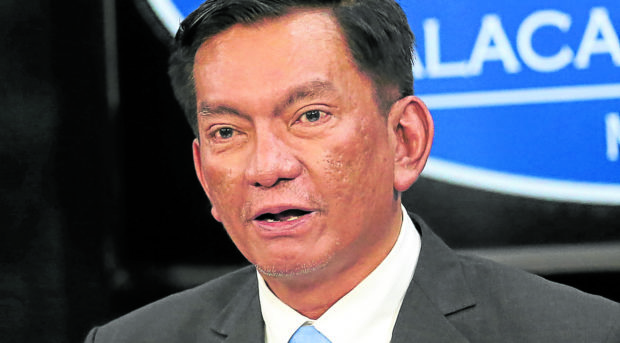
Albay 2nd District Rep. Joey Salceda. (INQUIRER FILE PHOTO)
MANILA, Philippines — Albay Rep. Joey Salceda wants to amend the 1996 Official Development Assistance (ODA) Act to ensure that the country has “the flexibility to acquire top-of-the-line air equipment and naval capabilities” needed to defend Philippine airspace and the West Philippine Sea.
Salceda, the House ways and means panel chair, said his committee, which is mandated to oversee sources of financing, would present amendments to the ODA Act, or Republic Act No. 8182.
In a statement, Salceda said the 27-year-old law includes certain restrictions, like a grant component floor of 40 percent of the total ODA loans, and at least 25 percent of each loan. It also has no provisions for private sector participation in financing.
The requirement for public bidding, the lawmaker noted, may “hinder loans for acquisitions such as defense equipment, which typically already have a single eligible supplier.
“That hinders us from acquiring, say, French submarines although France has already signaled its intent to make loans for these available,” Salceda said. He also noted that in 2021, the United States Defense Security Cooperation Agency already cleared the Philippines to acquire F-16 fighters.
“We were also cleared to purchase Harpoon missiles, which would definitely deter any naval incursion into our waters,” Salceda said.
He added: “Let’s build our defenses so that countries that have their eyes on the West Philippine Sea don’t feel like they can push us around so easily. Countries like us shouldn’t declare that our only option is diplomacy. No one wants war, but defenders don’t decide that. Aggressors decide whether they want war. And defenders have to be ready.”
He assured that proposed changes to the ODA Act will ensure that loans for defense capabilities “will remain deeply concessional, especially with the Enhanced Defense Cooperation Agreement and other similar military arrangements.”
“ODAs remain the cheapest way to borrow. They are still deeply concessional. The capital markets do not give you a grant component. And certainly, they do not come with technical capabilities and knowledge-sharing,” Salceda said.
The proposed amendments to the ODA Act “will continue to require that the ODA loans are still concessional compared to borrowing from the market.”
Salceda noted that when the ODA Act was drafted, the Philippines was still struggling with political and economic crises.
“We are now on the cusp of being an upper-middle income country. In the Organization for Economic Cooperation and Development’s definition for ODAs, we’re so close to not being eligible for any ODA already,” he said.
The lawmaker added: “At the rate we’re growing, soon no ODA will qualify at our stage of development. And that, of course, is bad for our long-term development needs. Especially because ODA loans are very long-term, unlike most capital market instruments.”